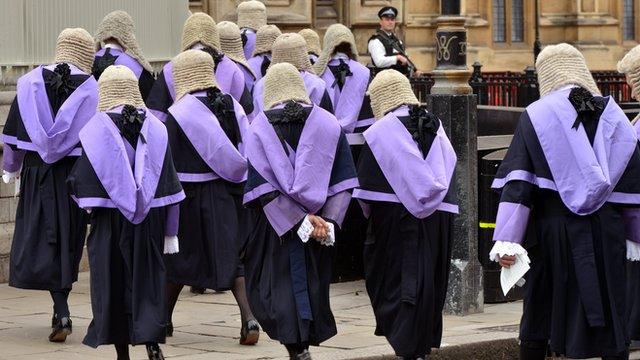Welsh judges 'need to be more ethnically diverse'
- Published
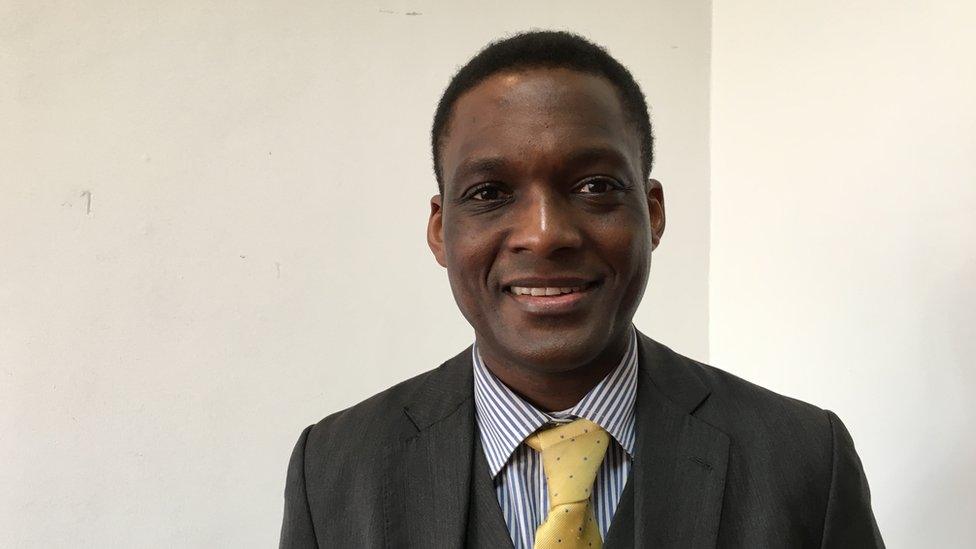
Barrister Nuhu Gobir is one of the few people from a BAME background working in the criminal justice system in Wales
In December, the UK government gave its response to MP David Lammy's report into discrimination in the UK criminal justice system. The report showed that BAME (black, Asian and minority ethnic) men and women represent 25% of prisoners despite making up 14% of the population. In Wales, 11% of inmates are from BAME backgrounds, compared with 4% of the country's population. Here, one barrister, Nuhu Gobir, of 9 Park Place Chambers, Cardiff, tells of his experiences of discrimination in the criminal justice system in Wales and the particular problems the country faces.
When I read MP David Lammy's recent report, external into racial discrimination in the UK's criminal justice system, I wasn't surprised.
It revealed that BAME individuals still face bias and that the system treats ethnic minorities more harshly at every level - from arrest to sentence.
I have worked as a barrister in Wales for the past 16 years, and while I do not feel myself or my BAME clients have seen overt discrimination, there are obvious problems for all to see.
This starts with the judiciary.
As far as I'm aware, there is not a single black criminal judge in the whole of Wales.
Certainly, there are none in the areas I cover - Cardiff, Swansea, Newport and Merthyr Tydfil crown courts.
In fact, since I began work in 2001, I have only come across one BAME judge, who quickly moved on at the start of my career.
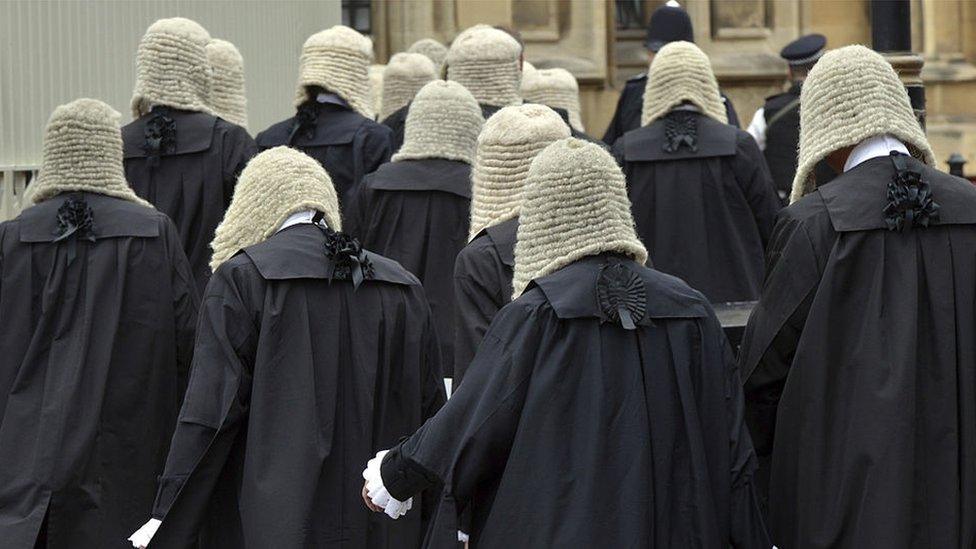
Barrister Nuhu Gobir says he is not aware of a single black criminal judge in the whole of Wales
I must have done thousands of criminal cases since then - and every single one in front of a white judge.
While I, as a black barrister, may find this situation uncomfortable and frustrating, I am all too aware how this can appear to BAME defendants.
In my work, I both prosecute and defend, but sometimes when I've been defending, my clients have openly said to me, "This judge is racist and I'm not going to get a fair trial."
Because I have worked the patch for so long, I tend to know the judges, so I try to reassure them that this won't be the case. I don't feel the judges are racist.
But often, whatever the evidence against them, my clients don't believe me and won't plead guilty as they want to get their case before a jury.
Perhaps this is because it's been shown juries are pretty consistent in their decision-making, irrespective of the ethnicity of the defendant.
Several BAME defendants I've represented have been acquitted by juries - despite the juries being almost exclusively white, something else that rankles, even if they are drawn at random.
But there is more concern about judges.
Although I have not personally perceived a bias, data from the Ministry of Justice shows that, in 2015, BAME offenders at the crown court were more likely to receive a prison sentence than white offenders for comparable crimes.
Recently, I defended a black drug-dealer. After he was found guilty, he received a lengthy sentence at the extreme end of the judge's guidelines.

David Lammy MP (left) was shown around Cardiff prison by governor Darren Hughes in July 2016
This may well have been down to the obvious seriousness of his crime. But the client felt the judge was racist and that he'd been given a very heavy sentence because of his colour.
It is for this reason - BAME defendants seeing white judges at every hearing and feeling the system is rigged against them - that I believe diversity targets for judges are a good thing.
Admittedly, Wales is not as ethnically diverse as England - 4% BAME compared to 14% for England and Wales.
Yet we still need a far more diverse judiciary, as well as more BAME magistrates, police officers and barristers.
I am one of only three BAME barristers I can think of across the whole of Wales.
I realise achieving this will be a slow process, however.
The numbers of newly appointed BAME judges varies each year.
In 2016-17, 12% of those who applied to be authorised to sit as high court judges were from BAME backgrounds but, of those, just 3% got recommended for appointment.
Even if more do succeed, they may not want to work in Wales, so I find it very difficult to know how the situation will change without intervention.
Having targets - even if they are only something to strive for - will at least give a better perception to BAME defendants, and will reduce their anger at and distrust in the process.
It is, after all, a system that needs to work for everyone - whatever the crime that's been committed.
As for me, I am accustomed to working in a world where almost everyone around me is white.
I don't mind it and it is my choice.
If occasionally I feel out of place, more often I feel it is very important to be a black man working in this profession.
- Published8 September 2017
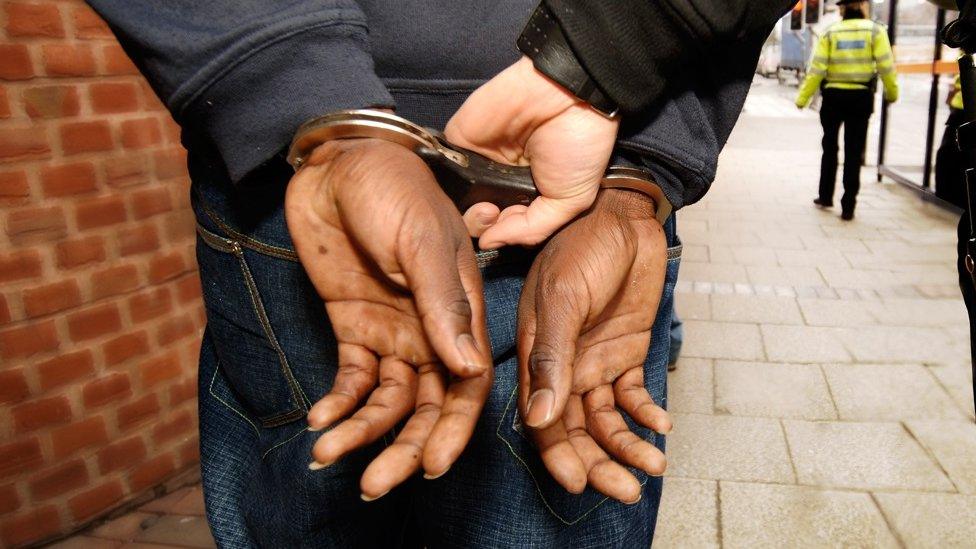
- Published19 December 2017

- Published27 May 2016
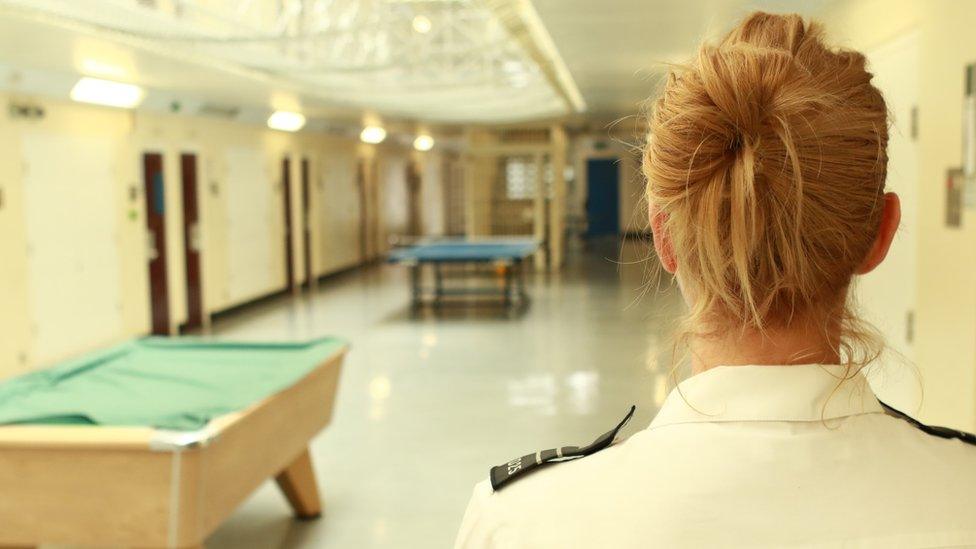
- Published4 November 2015
